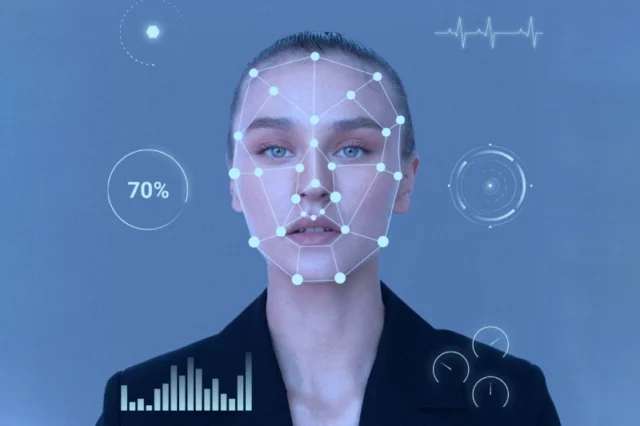With advancements in technology, artificial intelligence (AI) has made its way into various industries, and the field of personalized aesthetic treatments is no exception. In this article, we will explore the role of AI in these treatments and gain valuable insights from Medgol, a leading provider in the industry.
AI has revolutionized personalized aesthetic treatments by enabling practitioners to offer tailored solutions for each patient. By analyzing vast amounts of data and utilizing machine learning algorithms, AI can accurately assess individual characteristics, skin type, and concerns, allowing for more precise and effective treatments.
Medgol, renowned for its expertise in the field, implements AI-driven technologies to provide personalized aesthetic solutions. Their cutting-edge software analyzes patient profiles, previous treatments, and outcomes to develop customized treatment plans. This approach ensures that patients receive the most suitable and effective treatments based on their specific needs and goals.
The integration of AI in personalized aesthetic treatments has proven to be a game-changer, offering patients enhanced results and improved experiences. Join us as we delve deeper into the fascinating world of AI and its impact on the field of aesthetics, with insights from Medgol leading the way.
Understanding AI in the Field of Aesthetic Treatments
Artificial intelligence (AI) has emerged as a transformative force in various sectors, and aesthetic treatments are no exception. At its core, AI refers to the simulation of human intelligence processes by machines, particularly computer systems. In aesthetic medicine, AI utilizes algorithms and data analysis to tailor treatments to individual needs. This technology leverages vast datasets to understand patient characteristics, skin conditions, and treatment histories, allowing for a high degree of personalization that was previously unattainable.
The application of AI in aesthetic treatments begins with data collection. Practitioners can gather information from a patient’s medical history, past treatments, skin assessments, and even lifestyle choices. This data is then processed by AI algorithms to identify patterns and correlations that may not be immediately obvious to human practitioners. By analyzing this information, AI systems can recommend specific treatments and predict potential outcomes, ensuring that each patient receives a customized approach suited to their unique circumstances.
Moreover, AI in aesthetic treatments is not just about data analysis; it also involves continuous learning. Machine learning, a subset of AI, allows systems to improve their performance over time as they are exposed to more data. As practitioners use AI-driven tools in their practice, the algorithms refine their recommendations based on real-world outcomes. This dynamic capability enhances the effectiveness of personalized treatments, making them more reliable and efficient in addressing individual concerns.
Benefits of Using AI in Personalized Aesthetic Treatments
One of the most significant advantages of integrating AI into aesthetic treatments is the heightened level of personalization it facilitates. Traditional approaches often relied on a one-size-fits-all methodology, which could lead to suboptimal results for many patients. In contrast, AI enables practitioners to develop treatment plans that are finely tuned to the specific needs and desires of each individual. This customization not only improves patient satisfaction but also boosts the overall efficacy of the treatments administered.
Another key benefit of AI in aesthetics is its ability to enhance decision-making processes. With vast amounts of data at their disposal, practitioners can make informed choices backed by evidence and predictive analytics. For instance, AI can help identify the most effective treatment protocols based on a patient’s unique attributes and previous responses to therapies. This leads to a more strategic approach in aesthetic medicine, reducing the trial-and-error aspect that often accompanies treatment planning.
Additionally, AI can streamline clinic operations and improve patient experience. By automating routine tasks such as scheduling, follow-ups, and data entry, practitioners can devote more time to direct patient care. AI-powered chatbots can assist in answering common patient inquiries, providing a 24/7 resource that enhances accessibility. This efficiency not only reduces the administrative burden on staff but also ensures a smoother experience for patients, contributing to higher retention rates and referrals.
The Role of AI in Skin Care and Beauty Treatments
AI’s impact on skin care and beauty treatments is profound, as it provides insights that empower practitioners and patients alike. One of the primary roles of AI in this field is in skin analysis. Advanced imaging technology combined with AI algorithms can assess skin condition with remarkable accuracy, identifying issues such as pigmentation, wrinkles, and texture irregularities. This data can inform treatment decisions, enabling practitioners to recommend specific therapies tailored to the patient’s skin type and concerns.
Moreover, AI can assist in tracking the effects of treatments over time. By continuously monitoring a patient’s skin condition and treatment responses through AI-enabled platforms, practitioners can make real-time adjustments to treatment plans. This adaptability ensures that patients receive the most effective interventions, reducing the likelihood of adverse effects or unsatisfactory results. For example, if a particular product is not yielding the desired outcome, the AI system can suggest alternatives based on similar cases that have shown better efficacy.
AI also plays a crucial role in educating patients about their skin health. Through personalized recommendations and insights, patients can gain a deeper understanding of their skin’s needs and the factors that influence its condition. This empowerment leads to more informed decisions regarding their care and treatment options, fostering a collaborative relationship between practitioners and patients. As a result, AI not only enhances treatment efficacy but also improves patient engagement and adherence to recommended regimens.
AI-Powered Devices and Tools for Personalized Aesthetic Treatments
The rise of AI-powered devices has significantly advanced the landscape of personalized aesthetic treatments, providing practitioners with innovative tools to enhance their services. One such advancement is the development of smart skin analyzers that utilize AI to evaluate skin conditions with precision. These devices can capture high-resolution images of the skin and analyze them using algorithms that detect various issues, such as sun damage, acne, and fine lines. The insights gained from these devices allow practitioners to recommend targeted treatments that address specific concerns.
In addition to skin analyzers, AI-driven treatment devices have emerged, offering automated solutions for procedures such as laser therapy and microdermabrasion. These devices utilize real-time data during the treatment process, adjusting parameters based on the patient’s unique skin characteristics. For instance, an AI-powered laser system can modify its intensity and duration depending on the skin’s response, ensuring optimal results while minimizing discomfort. This level of customization leads to a more effective and safer treatment experience for patients.
Furthermore, AI is integrated into telemedicine platforms, enabling remote consultations and follow-ups. Patients can upload images of their skin concerns, which AI algorithms analyze to generate preliminary assessments. Practitioners can then review these assessments and provide personalized recommendations, making aesthetic care more accessible. This convenience not only broadens the reach of aesthetic services but also allows patients to engage with their care from the comfort of their homes, driving greater patient satisfaction.
Case Studies: Successful Implementation of AI in Aesthetic Clinics
Several aesthetic clinics around the world have successfully integrated AI into their practice, showcasing the tangible benefits of this technology. One notable case is a leading clinic in Europe that adopted AI-powered skin analysis tools to enhance its consultation process. By implementing a comprehensive skin scanner, the clinic was able to provide patients with detailed assessments of their skin conditions, leading to a 30% increase in treatment uptake. Patients appreciated the personalized nature of the consultations, resulting in higher satisfaction levels and improved outcomes.
Another successful implementation occurred at a renowned aesthetic center in North America, where AI was utilized to streamline treatment planning. The clinic integrated an AI-driven software that analyzed patient data and previous treatment results to generate tailored care plans. This approach not only reduced the time spent on planning but also increased the accuracy of treatment recommendations. As a result, the clinic reported a 20% improvement in patient retention rates, as satisfied clients were more likely to return for follow-up treatments.
Moreover, a clinic in Asia implemented AI-assisted telemedicine consultations during the pandemic to maintain patient care while adhering to safety protocols. By leveraging AI algorithms to analyze patient-uploaded images, practitioners could provide preliminary assessments and treatment plans remotely. This innovation not only ensured continuity of care but also attracted new patients who valued the convenience of remote consultations. The clinic experienced a surge in demand for its services, demonstrating the effectiveness of AI in adapting to changing circumstances in the aesthetic industry.
Future Trends and Advancements in AI for Personalized Aesthetic Treatments
The future of AI in personalized aesthetic treatments is poised for significant advancements as technology continues to evolve. One emerging trend is the integration of augmented reality (AR) and virtual reality (VR) technologies with AI to enhance patient consultations. These immersive tools can allow patients to visualize potential treatment outcomes in real-time, helping them make more informed decisions about their aesthetic goals. By combining AI’s data-driven insights with AR/VR visualizations, practitioners can provide an even more engaging and informative experience for patients.
Additionally, the expansion of AI in predictive analytics will enable practitioners to foresee patient needs and treatment responses more accurately. With the continuous accumulation of patient data, AI algorithms will become increasingly sophisticated at identifying trends and forecasting outcomes. This capability will empower practitioners to proactively adjust treatment plans based on anticipated changes, enhancing the overall patient experience and outcomes. As AI becomes more adept at predicting individual responses, the level of personalization offered will reach new heights.
Furthermore, ethical considerations surrounding AI in aesthetics will shape future advancements. As the industry continues to adopt AI technologies, there will be a strong focus on ensuring patient privacy and data security. Regulatory bodies are likely to implement guidelines that govern the use of AI in medical practices, emphasizing transparency and ethical standards. Clinics that prioritize ethical AI practices will not only build trust with patients but also position themselves as leaders in the evolving landscape of aesthetic medicine.
Ethical Considerations and Concerns Related to AI in Aesthetic Treatments
As AI becomes increasingly integrated into aesthetic treatments, ethical considerations must be addressed to ensure responsible use of the technology. One of the primary concerns revolves around patient data privacy. The collection and analysis of personal health information raise significant privacy issues, and clinics must implement robust data protection measures to safeguard patient confidentiality. Clear consent protocols should be established, informing patients about how their data will be used and stored.
Another ethical consideration is the potential for over-reliance on AI at the expense of human judgment. While AI can provide valuable insights and recommendations, it is essential for practitioners to maintain an active role in the decision-making process. The human touch in aesthetic medicine is irreplaceable, as practitioners can better understand the nuances of patient concerns and aspirations. Striking a balance between leveraging AI technology and preserving the essential elements of patient-practitioner relationships is crucial for maintaining ethical standards in the field.
Moreover, there is a risk of AI perpetuating biases present in the data it analyzes. If the datasets used for training AI algorithms are not representative of diverse populations, the resulting recommendations may not be equally effective for all patients. Addressing this issue requires a commitment to inclusivity in data collection and algorithm development, ensuring that AI tools are equitable and accessible to individuals from various backgrounds. Clinics must remain vigilant about the potential for bias and actively work to mitigate its impact on patient care.
Expert Opinions and Insights from Medgol on AI in Personalized Aesthetic Treatments
Medgol, a leading provider of AI-driven aesthetic solutions, is at the forefront of integrating technology into personalized treatments. Experts from Medgol emphasize the transformative potential of AI in enhancing patient outcomes and experiences. According to their insights, AI allows practitioners to analyze patient data with unprecedented accuracy, leading to highly tailored treatment plans. This level of customization not only improves efficacy but also fosters a deeper understanding between patients and practitioners.
Furthermore, Medgol highlights the importance of continuous learning in AI systems. As more data becomes available, AI algorithms can refine their recommendations, ensuring that treatments evolve alongside emerging trends and technologies. This adaptability is crucial in the fast-paced world of aesthetics, where patient preferences and treatment modalities are constantly changing. Medgol’s commitment to leveraging AI in this manner positions them as leaders in the field, offering cutting-edge solutions that prioritize patient satisfaction and safety.
Additionally, Medgol advocates for ethical practices in AI implementation. They emphasize the significance of patient education and transparency regarding data usage. By fostering open communication with patients about the role of AI in their treatment journeys, Medgol aims to build trust and confidence in the technology. Their approach underscores the belief that AI should enhance, rather than replace, the human element in aesthetic care, ensuring that patients receive the best of both worlds in their treatment experiences.
Conclusion: The Transformative Potential of AI in the Field of Aesthetic Treatments
The integration of AI in personalized aesthetic treatments represents a significant leap forward in the industry, offering a multitude of benefits that enhance both patient care and practitioner efficiency. From personalized treatment plans informed by data-driven insights to AI-powered devices that streamline procedures, the role of technology in aesthetics is becoming increasingly vital. As demonstrated by successful case studies and the insights from industry leaders like Medgol, AI is reshaping the landscape of aesthetic medicine in profound ways.
Looking ahead, the future of AI in aesthetics is bright, with continued advancements poised to further elevate the quality of care provided to patients. The combination of predictive analytics, immersive technologies, and a commitment to ethical practices will ensure that AI remains a force for good in the field. As practitioners embrace these innovations, they will be better equipped to meet the diverse needs of their patients and deliver exceptional outcomes.
Ultimately, the transformative potential of AI in aesthetic treatments lies in its ability to empower both practitioners and patients. By harnessing the power of data and technology, the aesthetic industry can move toward a more personalized, effective, and patient-centered approach. As we continue to explore the possibilities of AI in this dynamic field, it is clear that the future of aesthetic treatments is not only bright but also filled with exciting opportunities for innovation and improvement.





